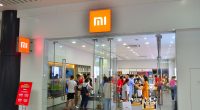The Trump administration has reportedly expressed significant concern over Apple’s recent decision to integrate Alibaba’s artificial intelligence (AI) technology into iPhones sold in China. According to a report by the New York Times, the US government’s concern centers on the potential implications for national security, data privacy, and the broader geopolitical relations.
This partnership was confirmed by Alibaba in February 2025. Apple’s move to partner with Alibaba comes as a strategic response to the challenges posed by China’s regulatory environment, which prohibits the use of certain foreign AI technologies (including OpenAI’s ChatGPT). These rules directly affect Apple’s business in China. The company has faced declining iPhone sales in China, attributed in part to the absence of advanced AI features that are increasingly popular among consumers. During Q2 2025, the company’s revenue in Greater China slipped 2% to $16 billion, compared with an 11% fall in the prior-year quarter.
Earlier, according to data from research firm IDC, Apple’s shipments in China fell 9% year-over-year in the first quarter of 2025, representing the seventh consecutive quarterly decline. During the first quarter of the year (Q1 2025), the company shipped 9.8 million iPhones in the country. This decrease reduced the company’s market share in the Chinese smartphone market to 13.7% and caused Apple to rank fifth in the country, trailing behind major domestic brands like Xiaomi, OPPO, and Vivo.
However, by collaborating with Alibaba, the iPhone maker plans to provide AI features that are specially designed for the Chinese market. This will help the Cupertino-based company comply with local regulations and compete more effectively with local giants. Alibaba’s AI will serve as a layer on top of Apple’s own models, modifying and censoring content as per Chinese regulations.
But now it seems like the US government has several concerns about the deal. First, they worry it could help China improve its AI technology, which might be used for surveillance or military purposes. Second, using Alibaba’s AI in iPhones could make Apple more exposed to Chinese laws that require data sharing and content control, raising issues about user privacy and possible censorship.
This comes amid growing tensions between the US and China over technology and trade dominance. The Trump administration has recently reversed a Biden-era policy that restricted the export of advanced AI chips, opting instead for a new global strategy aimed at countering China’s influence in the AI sector. Recently, US President Trump also asked Apple CEO Tim Cook not to move iPhone manufacturing from China to other countries like India or Vietnam. Instead, Trump wants the tech titan to increase its manufacturing operations inside the United States.
But earlier this week, the US and China agreed to lower import tariffs. Under the latest agreement, US tariffs on Chinese goods will drop from 145% to 30%, while China will cut duties on some US products from 125% to 10%.
The Tech Portal is published by Blue Box Media Private Limited. Our investors have no influence over our reporting. Read our full Ownership and Funding Disclosure →






